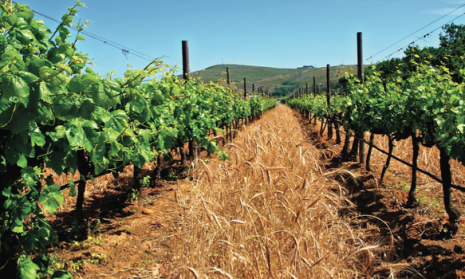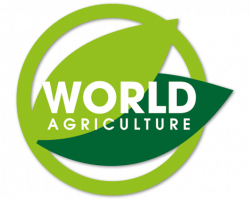Africa and Agriculture

Agriculture, including animal production, has always been important to Africa and is likely to continue to be so.
It has provided food for people and other products such as feed for livestock and raw materials for building and clothing, e.g. cotton, employment, fuel from dung and exports, for which there may be new opportunities. In the future, a wider range of products is likely to be produced, such as chemical feedstocks, fuel and medicinal crops. The latter represent some of the newer opportunities but basic food production is the priority. There are already large numbers of hungry people, due to poverty. More food production is little help to those who cannot afford to buy it and food aid can only be a temporary measure as otherwise it may impact adversely on local food production. Even so, food production will increase in importance, in a world facing population increase and climate change, with the prospect of devastating disease outbreaks reducing both crop and animal production and less reliable rainfall. Precautionary actions, such as preventive medicine, require scarce resources of money and veterinary skills.
All this emphasises the need to use all appropriate technologies and the need for relevant research. Agricultural research is often the first to be cut back in any financial crisis and developing countries need help to undertake research of direct relevance to their needs.
However, the situation is vastly more complicated than the matter of increasing agricultural production. There are huge losses after production, due to inadequate facilities for preservation and storage, exacerbated
by lack of infrastructure, such as roads and vehicles. Even these problems pale into insignificance compared with the effects of wars, violence, human disease, such as Aids, and political mismanagement. Many of these problems will be exacerbated if food production is reduced by climate change.
There is little that outsiders can do about many of these problems. Even human disease prevention and control is not simply a matter of vaccines (and ways of storing and transporting them) or of access to remote areas, there are also problems of education, even of top politicians!
As Poul Andersen famously said: “I have yet to encounter any problem, however complicated, which, when looked at in the proper way, did not become still more complicated!”
Countries that used to provide for the food needs of large areas are now desperately short of food themselves, often due to the misguided actions of their own governments. The potential for agricultural production in Africa has always been considerable but whether this potential will survive the consequences of climate change is not known.
It seems likely that climate change will be generally unfavourable to agriculture, increasing the risk of drought and floods, but flooding of low-lying areas could also lead to serious problems of human migration and the need for resources to be diverted to reconstruction.
There is already a shortage of resources, from fertilisers, especially P, and credit to water – although the latter may also be a problem when present in excess. Tackling the unhelpful distribution of water and the excess to times of need, is already urgent.
Furthermore, where the need to provide employment is so great, small- scale farming is a solution as much as a problem. However, small farmers lack power and cooperative ventures might be necessary to overcome some of the weaknesses of small-scale operation. Cooperative activity could include the construction of dams and infrastructure.
But the solutions are not always, or only, best achieved by large-scale reconstruction. The simple provision of plastic rain-water butts to village households could make a major contribution to water supply, preferably combined with fish culture to keep down the mosquitoes.
Traditional sources of fuel, such as wood, often involve collection over large distances and take up a great deal of the available labour: water collection is often a similar burden. New fuel crops, such as Jatropha, which do not compete with food
crops, may help to ease the first of these problems and local collection of rain water could help with the second. Transport and traction depend heavily on animal power, which itself means the use of large areas just to feed the animals, but mechanical power is expensive and requires fossil fuels.
This catalogue of problems is not intended to imply a pessimistic assessment of future prospects, only to illustrate that efforts to improve matters have to recognise the realities.
We must avoid simplistic solutions based just on agricultural technology, but that does not mean that appropriate technology cannot be developed. There are reserves of experience and expertise in developed countries that could be harnessed to tackle the agricultural problems in relevant ways but they need to be mobilised and funded, with the aim of helping others to help themselves.
One of the difficulties has always been how to make such resources available to those in developing countries who can make effective use
of them – and this is not always best done via Governments. Links between universities in developed and developing countries provide one way forward but major aid money would need to be channelled by this route.
However, if local people are to use modern technological developments (genetic modification is a good example), they have to have objective and independent assessments as to the benefits, risks and costs of applying them in their situations.
This is the primary function of this journal: it will take time to cover even a fraction of the topics but the present issue makes a start in relation to Africa.
Download pdf
